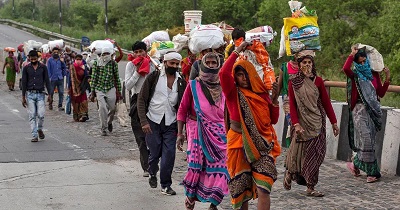Context
The recruitment of Indian nationals under the guise of lucrative jobs only to find themselves fighting on the frontlines in Russia's ongoing conflict with Ukraine has highlighted significant concerns about mercenary activity and the protection of migrant workers. This issue underscores the increasing use of private military companies (PMCs) and the complex legal landscape governing mercenaries. The tragic deaths of Indian nationals in this context have spurred calls for better safeguarding of overseas migrant workers and a reevaluation of the existing legal frameworks related to mercenaries.
Mercenaries and International Humanitarian Law
- Definition and Legal Status: Under international humanitarian law (IHL), a clear distinction is made between conventional combatants and mercenaries. While combatants are members of the armed forces of a party involved in a conflict, mercenaries are typically recruited from third-party states and motivated primarily by personal gain rather than patriotic duty. Article 47 of Additional Protocol I to the Geneva Conventions outlines six cumulative conditions to identify a mercenary. These include being specially recruited to fight in an armed conflict, participating directly in hostilities, motivated by personal gain with compensation exceeding that of equivalent ranks in the armed forces, not a national or resident of a party to the conflict, not a member of the armed forces of a party to the conflict, and not sent by a state on official duty.
- Humane Treatment and Legal Protections: While mercenaries do not qualify for prisoner-of-war status and can be prosecuted under domestic laws for war crimes or other breaches of humanitarian law, they are still entitled to humane treatment under Article 75 of Additional Protocol I. This provision ensures fundamental guarantees of humane treatment for all individuals involved in armed conflicts, regardless of their status.
Evolving Legal Frameworks
- International and Regional Conventions: The limitations of the definition provided in Article 47, which primarily addresses international armed conflicts, led to the adoption of more expansive definitions in other international instruments. The Organization of African Unity Convention for the Elimination of Mercenarism in Africa (1977) and the United Nations International Convention against the Recruitment, Use, Financing, and Training of Mercenaries (1989) both offer broader definitions that include activities aimed at overthrowing governments or undermining constitutional order.
- Private Military and Security Companies: The rise of private military and security companies (PMSCs) has added complexity to the regulation of mercenary activities. PMSCs often take on roles traditionally associated with mercenaries, providing a range of services from combat operations to logistical support. However, the legal framework governing PMSCs is often less stringent and relies heavily on the domestic laws of the countries in which they operate. The controversial Wagner Group in Russia exemplifies the challenges of regulating such entities, especially when they operate under ambiguous or informal state sponsorship.
India's Response and the Role of International Cooperation
- Indian Government Actions: The Indian Ministry of External Affairs (MEA) has acknowledged the deaths of Indian nationals recruited by the Russian Army and has taken steps to address this issue. The MEA has raised concerns with the Russian authorities and issued advisories to caution Indian citizens against seeking employment in Russia. Additionally, the Central Bureau of Investigation (CBI) has initiated legal actions against individuals and companies involved in trafficking Indian nationals under false pretenses.
- Preventive Measures and Public Awareness: To prevent such incidents, the Indian government could adopt a two-pronged approach focusing on long-term and immediate measures. Addressing the underlying economic factors driving migration through improved domestic job opportunities and economic policies is crucial. Simultaneously, immediate measures could include public awareness campaigns about the risks of overseas employment offers and stringent pre-travel vetting processes.
Global Context and Recommendations
- Strengthening International Legal Frameworks: The existing international legal frameworks for mercenaries and PMSCs need to be strengthened. The Montreux Document, which outlines best practices for state oversight of PMSCs, highlights the importance of compliance with international humanitarian and human rights laws. While neither India nor Russia is a signatory, adopting similar principles could enhance protections for individuals coerced or misled into joining such enterprises.
- Lessons from Other Countries: Other nations have taken proactive steps to protect their citizens from similar risks. Bangladesh’s Dhaka Principles for Migration with Dignity and Nepal’s travel bans to Russia and Ukraine serve as examples of effective measures. These initiatives focus on ethical recruitment practices and pre-emptive travel restrictions to high-risk areas.
Conclusion
The increasing recruitment of Indian nationals by foreign militaries under false pretenses exposes significant gaps in the protection of migrant workers and the regulation of mercenary activities. While international humanitarian law provides a framework for defining and treating mercenaries, the evolving nature of modern conflict and the rise of private military companies necessitate stronger legal and regulatory measures. India must enhance its domestic policies to address the root causes of distress migration and implement robust safeguards to protect its citizens abroad. By learning from international best practices and strengthening global cooperation, India can better secure the interests of its overseas migrant workers and contribute to the broader effort to regulate mercenary activities and private military companies in conflict zones.
|
Probable Questions for UPSC Mains Exam
|
Source – The Hindu







